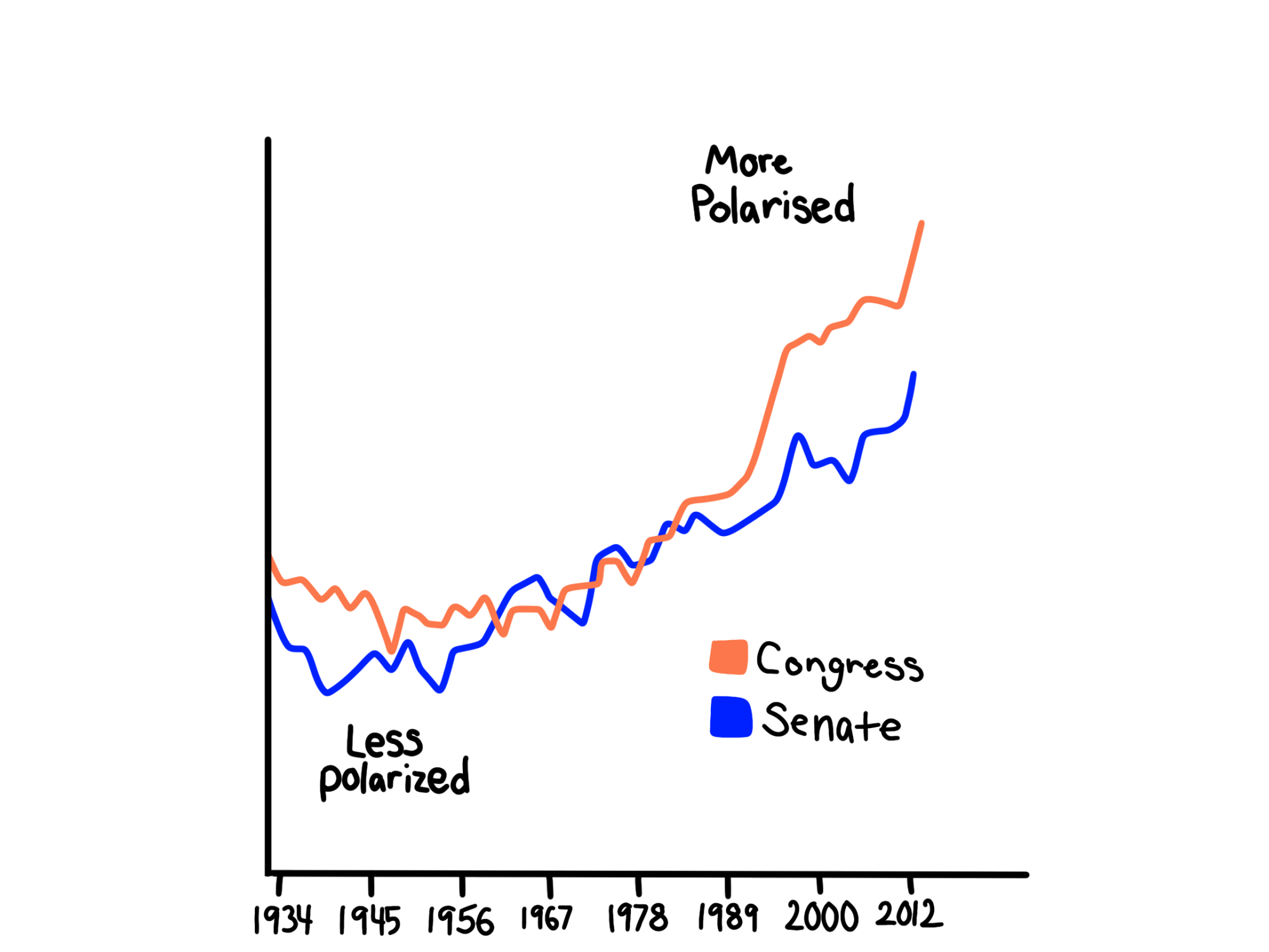America seems to be becoming more and more polarized every day, shown by the disagreements in Congress down to the protests in Mill Valley. Polarization in a community or society is when there is a strong division splitting two opposing groups or opinions.
While political opinions are a spectrum, America has generally separated into two groups: liberals and conservatives. This sharp division between the parties has caused many problems.
First, it means that Congress is much slower and able to pass fewer bills. The 98th Congress, which was held from 1993 to 1995, passed seven percent of bills, while the 118 Congress, which was from 2023 to 2025, passed only three percent. This is because of the increased polarization, which means that congressmen are no longer voting across party lines. They vote for their parties, and not for the bill itself, according to The New York Times in an article describing the lack of party crossover in Congress’ voting habits.
Second, it causes increased political violence in America. The polarization of politics has led to increased hatred for those with different beliefs than your own.
Across 83 democracies worldwide, a higher overall level of political polarization makes it more likely a country will experience a higher level of political violence, according to the Peace Science Digest, an academic research publiction for war-prevention information.
Not only could violence be more frequent, people are more likely to be forgiving to those within their own party. In a study done by the International Society of Political Psychology, participants were presented with situations where actors committed moral violations. When the political party of the offender was revealed to the participant, they found that in most cases the participant would be more sympathetic to those of their own party.
Part of this political violence and polarization is because of the “misinformation crisis.”
“Disinformation, misinformation, and mal-information together with the growth of hate speech and propaganda, especially online, are inciting social divisions and creating mistrust in public institutions,” the United Nations Development Program, an agency led by the United Nations for international development, said.
Part of this crisis stems from the use of algorithms when searching online. A site may show you results for a search that align with your views, and hide those that do not.
“Twitter’s engagement-based ranking algorithm amplifies emotionally charged, out-group hostile content that users say makes them feel worse about their political out-group,” according to an article from the Knight First Amendment Institute at Columbia University, a non-profit organization that defends freedom of speech and the press.
Libraries can provide books and resources free of external influence.
Another issue that stems from the same place is a lack of community – and a lack of involvement between parties. It is easy to hate people from another party if you do not know them.
The “contact hypothesis,” developed in the 1950s by psychologist Gordon Allport, has theorized that contact between two groups can promote tolerance and acceptance, and many studies have been conducted to prove this idea.
Despite their extreme practical use to benefitting society, they are not utilized as they could be.
“I have a handful of students who regularly check out books, and I have occasional students that will check out books once every couple months,” Kindra Lee, the Tamalpais High School librarian says. “It’s not a lot, I wish it were more.”
Libraries provide a communal place to meet others and coexist, and can be useful to people from all ages.
The Mill Valley Public Library, for instance, holds events such as: toddler storytimes, teen study halls, informational lectures, book clubs, and adult arts and crafts.




